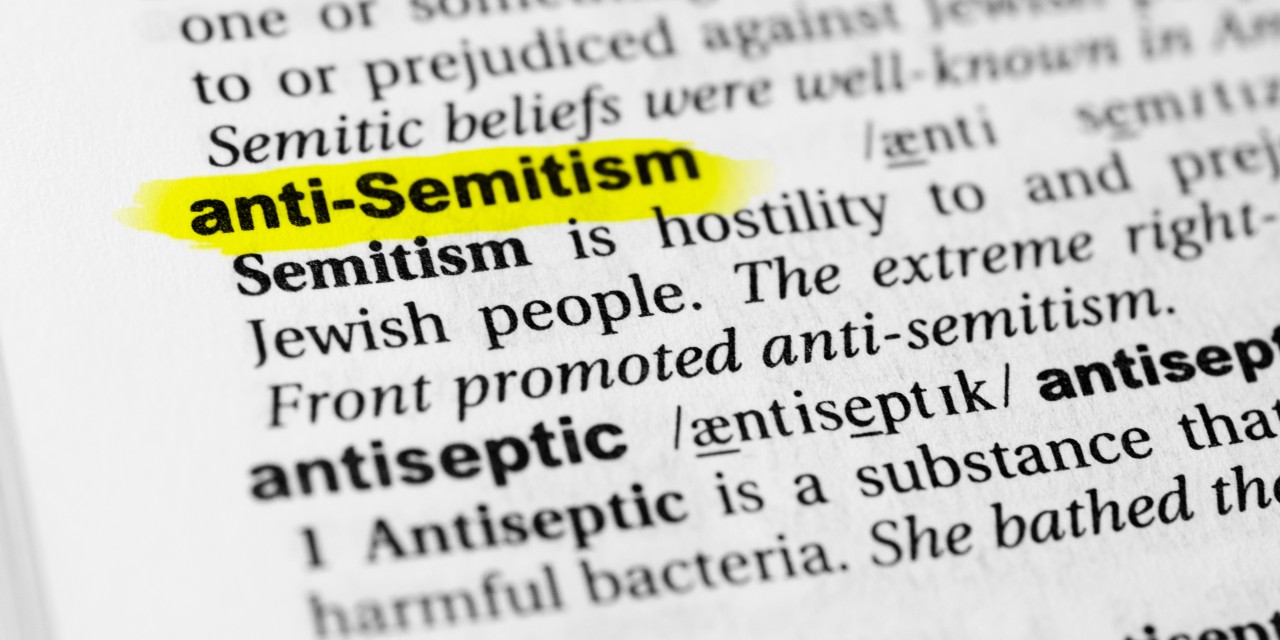Last week Clifton New Jersey faced a shock. A small city with a long history as an immigrant town, Clifton has a Jewish community dating back to the turn of the century. Yet in the wake of massive increases in antisemitic hate crimes nationwide, Clifton was hit in recent months with uncharacteristic antisemitic graffiti and vandalism, an unsettling surprise to the local population and a disturbing view of undercurrents that may portend worse yet to come.
Like many communities, Clifton decided to address this problem, in part, by adopting the International Holocaust Remembrance Alliance (IHRA) definition of antisemitism, Yet in Clifton, as in many communities as of late, something different happened this week as the matter came close to a vote: a large and growing cohort of groups levied fierce opposition. Though couched in the language of free speech and human rights, even a cursory examination shows criticism of the IHRA definition in Clifton and other similar cases to be disingenuous and in many cases even antisemitic.
Adopted by a wide range of local and national governments as well as non-governmental organizations around the world, the IHRA definition is the most widely accepted definition of antisemitism. Though not legally binding, the IHRA definition allows policymakers to properly identify and respond to antisemitism when it occurs. The definition also provides an important guide for public conversation, journalists, and the full range of professionals in any field that may touch on antisemitism.
Recent opposition to the IHRA definition claims that it is “anti-democratic” and “stifle[s] free speech and criticism of Israel.” This is clearly a disingenuous argument as the IHRA definition itself states that “criticism of Israel similar to that leveled against any other country cannot be regarded as antisemitic.” (emphasis added)
Accordingly, why would a group wishing to criticize Israel oppose a definition of antisemitism that clearly and explicitly accommodates such criticism?
The answer can be found in the day to day activities of the “anti-IHRA” groups: nearly all meet the IHRA definition of antisemitism by systematically criticizing Israel in a manner that is not similar to criticisms leveled against other countries, in other words: they engage in antisemitic double standards.

For example, one of the groups that opposes the IHRA definition is the Boycott, Divestment and Sanctions Movement against Israel (BDS). In addition to calls for boycotting Israel that sound strikingly similar to the Nazi boycotts of Jewish businesses in the 1930s, BDS leadership also advocates for the overthrow of the State of Israel, in a manner that they do not apply to any other sovereign state, for example:
“Definitely most definitely we oppose a Jewish state in any part of Palestine.”
BDS co-founder Omar Barghouti (He clarifies that by “Palestine” he means all of Israel).
“The real aim of BDS is to bring down the State of Israel…this should be stated as an unambiguous goal.”
CalState Professor of Political Science and BDS leader Assad Abu Khalil
“Israel has no right to exist…”
A further example of antisemitic double standards can be found in the work of another anti-IHRA group, Amnesty International. This international NGO published a highly flawed report in which it claims that Israel is an “apartheid state” and advocates for the prosecution of individual Israeli citizens at the International Criminal Court. Amnesty International reached their nonsensical conclusion by changing the definition of apartheid and applying their new definition exclusively to Israel. Amnesty’s work in this area was widely criticized, including by their own head of Israel operations.
These examples represent precisely the type of antisemitic double standard that the IHRA definition is designed to help prevent.
Critics of the IHRA definition have proposed a new definition of their own, which they call the “Jerusalem Declaration.” Among numerous other flaws, this alternative definition of antisemitism specifically declares that “opposing Zionism” is not antisemitic. To be clear, Zionism is the philosophy that Jews are entitled to the same rights to national self determination as every other group, a philosophy enshrined in the United Nations Charter and now considered to be a right under international law. Thus “opposing Zionism” is necessarily the political philosophy that Jews should not have the same rights under international law as all other human beings.
Groups that oppose the IHRA definition of antisemitism misleadingly couch their arguments in the language of human rights and free speech, yet the IHRA definition does not present any of the dangers to which these anti-IHRA groups object. To the contrary, the overwhelming majority of these anti-IHRA groups apply antisemitic double standards to the Jewish state and the Jewish people, and are working to systematically deny the Jewish people some of the most fundamental human rights afforded by international law. It is ironic yet fitting that the real-world, modern day antisemitism of anti-IHRA organizations highlights exactly why our communities should implement and maintain the IHRA definition of antisemitism.
If you’re one of our supporters, thank you so very much for making this work possible. And if you’re new here, please consider helping to make our growth possible with a tax deductible donation by clicking HERE.



